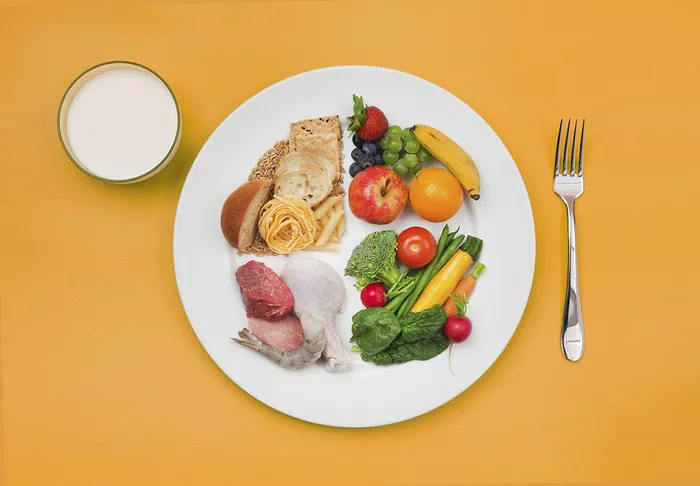Breakfast is often referred to as the most important meal of the day, and for athletes, this statement couldn’t be truer. A well-rounded breakfast plays a crucial role in fueling the body for the physical demands of training and competition. The importance of breakfast for athletes can be broken down into three key areas:
Replenishes Energy Stores: During sleep, the body’s glycogen levels, which are the primary energy source stored in muscles and the liver, become depleted. A nutritious breakfast helps to replenish these energy stores, ensuring that athletes have the necessary fuel to perform at their best.
Improves Focus and Concentration: Cognitive function is essential for athletes, whether they’re strategizing during a game or maintaining focus during a long training session. Breakfast provides essential nutrients like glucose, which the brain uses as its primary energy source, enhancing mental clarity and concentration.
Boosts Metabolism: Eating breakfast kickstarts the metabolism, helping the body efficiently utilize energy throughout the day. For athletes, a well-functioning metabolism is key to maintaining energy levels during training and recovery periods.
SEE ALSO: What Should I Include in My Diet
Macronutrient Balance
A balanced breakfast for athletes should include a mix of carbohydrates, protein, and healthy fats. Each macronutrient plays a vital role in supporting athletic performance and overall health:
Carbohydrates: Carbohydrates are the body’s primary energy source, especially during high-intensity exercise. Including complex carbs like whole grains, fruits, and vegetables in breakfast helps sustain energy levels throughout the day.
Protein: Protein is crucial for muscle repair and growth. After an overnight fast, consuming protein at breakfast helps prevent muscle breakdown and supports recovery from previous workouts.
Healthy Fats: Healthy fats, such as those found in avocados, nuts, and seeds, provide sustained energy and are essential for absorbing fat-soluble vitamins like A, D, E, and K. Including a source of healthy fats in breakfast can help keep athletes satiated and energized for longer periods.
Recipe
Creating a breakfast that meets an athlete’s nutritional needs doesn’t have to be complicated. Here are some practical and balanced breakfast options tailored to different athletic needs:
High-Carb Options:
Oatmeal with Fruit and Nuts: Start your day with a bowl of oatmeal topped with fresh berries and a handful of almonds or walnuts. This combination provides complex carbs for energy, fiber for digestion, and healthy fats for sustained energy.
Whole-Grain Toast with Avocado and Eggs: Whole-grain toast is a great source of complex carbs, while avocado and eggs offer healthy fats and protein, making this a well-rounded breakfast.
Smoothie with Protein Powder: Blend a banana, berries, spinach, a scoop of protein powder, and a tablespoon of chia seeds. This smoothie is rich in carbs, protein, and healthy fats, perfect for athletes on the go.
Protein-Rich Choices:
Eggs with Whole-Grain Toast: Scrambled or poached eggs with whole-grain toast provide a perfect balance of protein and carbs, ideal for muscle repair and energy replenishment.
Greek Yogurt with Granola and Fruit: Greek yogurt is high in protein, and when paired with granola and fruit, it becomes a well-rounded breakfast that also satisfies your sweet tooth.
Chia Seed Pudding with Protein Powder: Mix chia seeds with almond milk and a scoop of protein powder the night before. By morning, you’ll have a protein-packed pudding that’s easy to digest and full of energy.
Healthy Fat:
Avocado Toast with Eggs: Avocado is an excellent source of healthy fats, and when paired with eggs, it provides a satisfying breakfast that’s rich in protein and essential nutrients.
Nut Butter on Whole-Grain Toast: Spread almond or peanut butter on whole-grain toast for a quick and easy breakfast that delivers healthy fats, protein, and complex carbs.
Smoothies with Seeds and Nuts: Adding flaxseeds, chia seeds, or a handful of nuts to your smoothie boosts its healthy fat content, providing sustained energy throughout the morning.
Timing and Pre-Workout Needs
The timing of breakfast can significantly impact an athlete’s performance, especially when training schedules vary. Here are some tips on optimizing breakfast timing:
Pre-Workout Meal: If you have an early morning workout, aim to eat a small, easily digestible meal about 30 to 60 minutes before exercising. A banana with a spoonful of nut butter or a small smoothie with protein powder can provide the energy you need without causing digestive discomfort.
Post-Workout Recovery: After a morning workout, it’s crucial to consume a meal rich in protein and carbohydrates to aid in muscle recovery and replenish glycogen stores. A protein smoothie with oats or a breakfast burrito with eggs and whole-grain tortillas are excellent options.
Recommendations
The best breakfast for athletes isn’t one-size-fits-all. It should be tailored to individual factors such as the type of sport, training intensity, and dietary preferences:
Sport Type: Endurance athletes, like marathon runners, may require more carbohydrates to fuel long training sessions, while strength athletes might focus on higher protein intake to support muscle growth.
Training Intensity: Athletes engaged in high-intensity training or long-duration sessions might need a larger, more calorie-dense breakfast to sustain energy levels.
Dietary Preferences: Whether you’re vegetarian, vegan, or gluten-free, there are plenty of breakfast options available. For example, a tofu scramble with vegetables can replace eggs for vegans, and gluten-free oats can be used instead of regular oats for those with gluten sensitivities.
In conclusion, the best breakfast for athletes is one that is balanced, tailored to individual needs, and consumed at the right time to support training and recovery. By prioritizing a nutritious morning meal, athletes can enhance their performance, recovery, and overall well-being.
Related Topics:



























